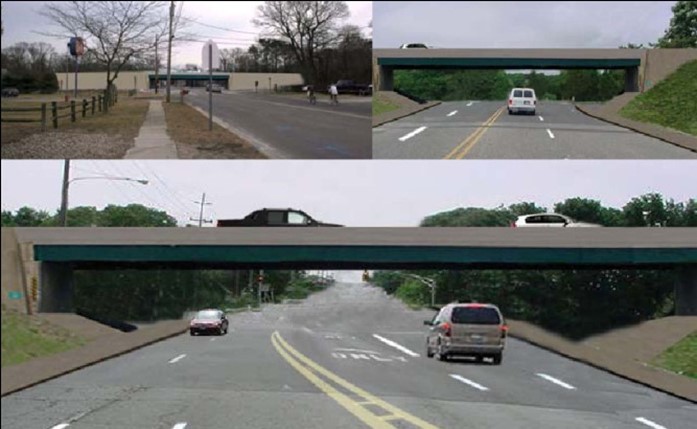Project Type: Environmental Compliance / Permitting / GIS
Garden State Parkway Interchanges 9, 10, and 11 Improvements
Cape May County, NJ
Arora managed and supervised the preparation of the NEPA Environmental Assessment (EA)/Individual Section 4(f) for the reconfiguration and redesign of the interchanges at Exits 9, 10 and 11 along a four-mile stretch of the Garden State Parkway in Cape May County, New Jersey. The project involved the introduction of three, new-grade separated interchanges and approach roadway and ramp improvements to remedy the existing design deficiencies and overburdened at-grade interchanges. The NEPA EA was prepared under the NJDOT Capital Project Delivery Process and was supported by technical studies for hazardous waste, noise, air quality, land use, socioeconomics, environmental justice and community impacts, community facilities, ecology, wetlands and cultural resources (historic architecture and archaeology) and an Individual Section 4(f) Evaluation for impacts to the GSP Historic District for which a Memorandum of Agreement was prepared to satisfy Section 106 compliance and the Secretary of Interior Standards for Rehabilitation. Section 106 compliance also involved Tribal Nation coordination. Due to the anticipated extensive environmental permitting that was required due to the project's proximity to sensitive freshwater and tidal wetlands and habitat, and due to the project’s location within the NJ Coastal Zone, regulatory agency coordination was a critical component of the project's public and agency outreach. Arora was also responsible for preparation and oversight of local and regional demographic analyses, community impacts analyses and compliance with Executive Orders NO. 12898 and No. 96 (Environmental Justice). Because of the extent to which the project encroached onto tidal and freshwater wetlands and habitat, permits from the NJDEP and USACE were advanced for CAFRA, Waterfront Development, Individual Freshwater and Tidal Wetlands, Flood Hazard/Storm Water management as well as compliance with the New Jersey No-Net Loss Forestation Act. The impacts to habitat, freshwater and tidal wetlands required extensive coordination with the NJDEP and USACE and other federal agencies in developing mitigation strategies for preservation, enhancement and creation. Also responsible for coordinating agency cooperation and local stakeholder participation. The Environmental Assessment and Section 4(f) Evaluation were approved in October 2011. The project FONSI was approved by FHWA in April 2012. The project has been advanced through the USACE and NJDEP permit review processes and the project was advanced to final construction. The project is fully operational.




